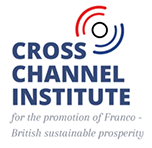
Gas: Europe’s group purchases are making slow progress
Europe’s gas market remains imperfect. While exchanges between European countries have intensified this winter, making it possible to avoid shortages, the question of joint purchases remains unresolved for the time being.
A few days ago, the European Commission entrusted the management of the purchasing platform to the German company Prisma. It is now responsible for aggregating demand from different European countries and searching for different offers on world markets to get the best prices.
Member states will have to ensure that their national companies participate in the demand finalisation, up to 15% of the volumes needed to fill their gas stocks to 90%. This would represent about 13.5 billion cubic metres for the EU as a whole.
In a second step, gas producers and consuming companies will be able to choose to buy gas through the platform, individually or in a group with others, from producers or suppliers of natural gas that meet the aggregate demand – this step is not mandatory, however. Russian gas will be excluded from the joint purchase. And the scheme includes the countries of the energy community: the Balkans, Ukraine and Moldova.
Competition issues
“Pooling demand at EU level will ensure that countries have better leverage when buying gas on world markets and that member states do not outbid each other in the process,” the Commission said.
However, some energy companies are dragging their feet and have strong doubts about the scheme. In discussions with the Commission, the large companies pointed out that they were already acting as intermediaries in the market, buying gas in large quantities and selling it to smaller companies. This would put them in competition with the European mechanism. “It is important that solidarity prevails. Small countries may have problems with market access,” the Commission retorts.
Competition issues have also been raised, although the Commission assures that this consortium of buyers will respect European rules. The Directorate-General for Competition has remained silent for the moment, which poses a problem,” says Thierry Bros, a professor at Sciences Po. Because buyers grouped together in a single purchase can be likened to a cartel.
Source : Les Echos.
